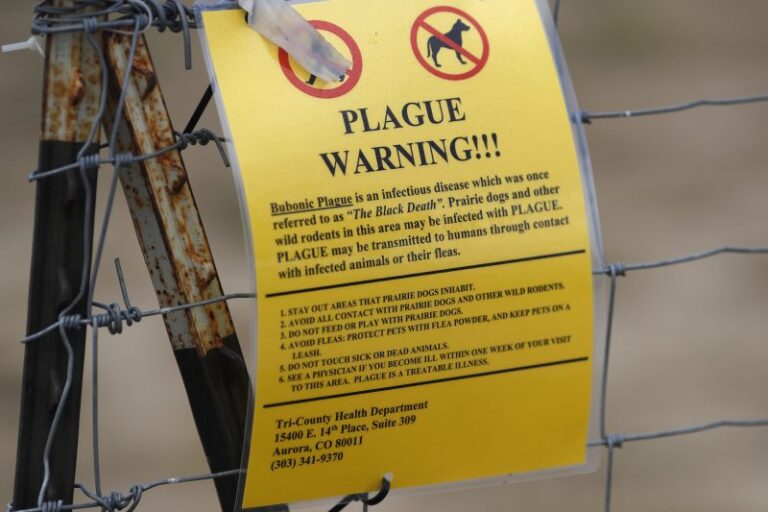PUEBLO, Colo. (KXRM) — The Pueblo Department of Public Health and Environment and the Colorado Department of Public Health and Environment are investigating a human case of plague after initial test results came back positive in Pueblo.
According to the PDPHE, the bacterium that causes plague, Yersinia pestis, is transmitted by fleas and circulates naturally among wild rodents. Plague can infect humans and their pets and can be contracted through the bites of infected fleas, by touching or scratching infected animals, or by inhaling droplets from the cough of an infected person or animal.
Typical symptoms of the plague are sudden fever and chills, severe headache, muscle pain, nausea, vomiting, and feeling unwell. Another common symptom of the plague is swollen lymph nodes accompanied by pain.
The PDPHE provides some steps you can take to protect yourself and your pets:
- Eliminate places where rodents can hide and breed around your home, garage, shed or recreation area. Remove brush, rock piles, trash and wood piles.
- Avoid contact with dead animals. If you must handle sick or dead animals, follow these guidelines:
- Apply insect repellent to protect yourself from fleas
- Use a long-handled shovel to place it in a trash bag
- Place the bag in an outdoor trash can
- Use an insect repellent containing 20 to 30 percent DEET to prevent flea bites. Treat pants, socks, shoe tops, arms, and legs.
- Do not let pets sleep in bed with you.
- Treat dogs and cats regularly for fleas. Flea collars have not been proven effective.
- Do not allow pets to hunt or roam in rodent-infested areas, such as prairie dog colonies.
- Store pet food in rodent-proof containers.
“If you develop symptoms of plague, seek medical attention immediately. Plague can be successfully treated with antibiotics, but an infected person must be treated promptly to avoid serious complications or death,” said Alicia Solis, program manager for PDPHE’s Office of Communicable Diseases and Emergency Preparedness.


